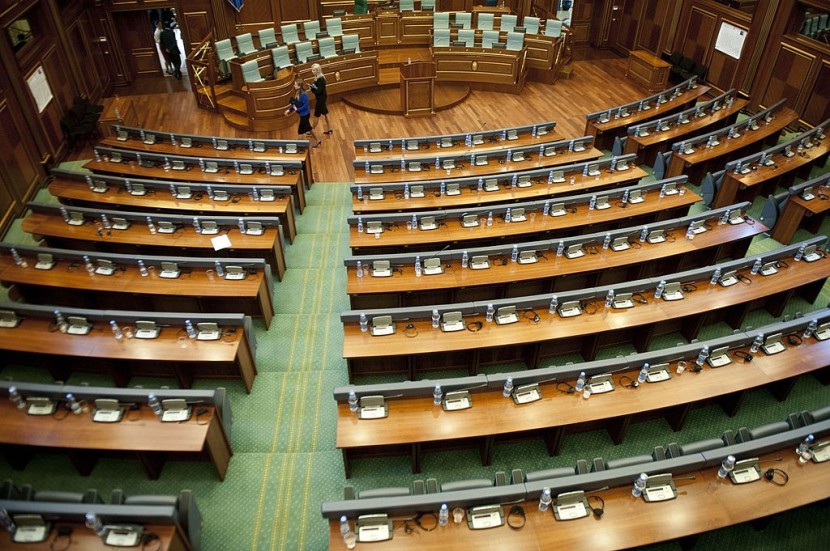
A brawl erupted in the Kosovo parliament in Pristina Thursday (July 13) after an opposition member of parliament (MP) threw water on Prime Minister Albin Kurti while he was speaking about government measures to defuse tensions with ethnic Serbs in the country's north.
Democratic Party of Kosovo MP Mergim Lushtaku approached Kurti while he was speaking and threw water at him, triggering the brawl. Earlier in the session, deputy prime minister Besnik Bislimi tore a drawing mocking Kurti that the opposition had given the prime minister.
According to local media, Kurti was escorted out of the assembly hall during the altercation, the Associated Press reported.
The disruption in the Kosovo parliament was not the first time, as tear gas was set off in the chamber twice in 2018.
Why Was Kurti Attacked?
Kosovo opposition parties have criticized his policies in the north and have strained relations with key Western allies such as the United States and the European Union.
Tensions rose after the US and the EU pressured Kurti to help calm the situation in Kosovo's north after violence broke out in May when police-backed ethnic Albanian mayors took office following an election that the ethnic Serb majority and the area widely boycotted.
Dozens of people were injured in the clashes between local Serbs and Kosovo police, fuelling fears of a conflict similar to the one back in 1998 and 1999 which killed more than 10,000 people. NATO-led peacekeepers were also hurt during the riots.
Kurti said he was applying law and order in northern Kosovo with the deployment of police and new ethnic Albanian mayors.
This also prompted Serbia to put its troops on high alert in the event the conflict escalated.
On Wednesday (July 12), Kurti announced he would reduce police presence stationed outside four municipal buildings in ethnic Serb-majority areas in northern Kosovo in order for the towns to hold new mayoral elections. This decision angered the opposition, who argued that Kurti experimented for months and jeopardized Kosovo's international position only to back down later.
Kosovo: A Big Balkan Question
Kosovo is a former province of Serbia whose 2008 declaration of independence Belgrade does not recognize. Most ethnic Serbs in Kosovo have also refused to acknowledge the country's statehood, which is backed by the US and most EU nations but not Russia and China.
Serbia previously threatened military intervention in response to tensions in its south. The country pulled out of Kosovo in 1999 after NATO bombed the country to stop the onslaught against ethnic Albanian separatists.
The EU and other Western officials have intervened in settling the dispute between Kosovo and Serbia. NATO also continues to provide peacekeepers in the area to boost security.
Related Article: International Efforts to Defuse Crisis in Kosovo Intensify Amidst Ethnic Serb Protests
© 2026 HNGN, All rights reserved. Do not reproduce without permission.








